Coronavirus: NZ airport worker gets COVID after travel bubble opens
An airport worker at Auckland has tested positive for Covid-19 on the second day of the Australia-New Zealand travel bubble.
World
Don't miss out on the headlines from World. Followed categories will be added to My News.
An airport worker at Auckland has tested positive for Covid-19 on the second day of the Australia-New Zealand travel bubble.
NZ’s Ministry of Health confirmed the airport worker’s case and said contact tracing was under way.
“The usual protocol of isolating the case, interviewing them, and tracing their contacts and movements is underway,” the statement said.
NZ Prime Minister Jacinda Ardern said the airport worker who tested positive cleans planes which have come from “red zones” where there are Covid-positive passengers.
She said the worker was also vaccinated.
She confirmed NZ Health officials are in contact with their counterparts in Australia.
“Look, when we opened on both sides we of course knew we would continue to have cases connected to our border. In fact when we announced the date for opening the trans-Tasman bubble, Queensland was dealing with cases linked to its border. We accept that’s going to be part of our journey together. I think Australia accepts that. And for both sides, we’re always looking for clear connection to the border in this case there is,” she said.
It comes as 1800 Australians came into New Zealand on Monday with 15 flight arrivals and 17 departures at Auckland Airport.
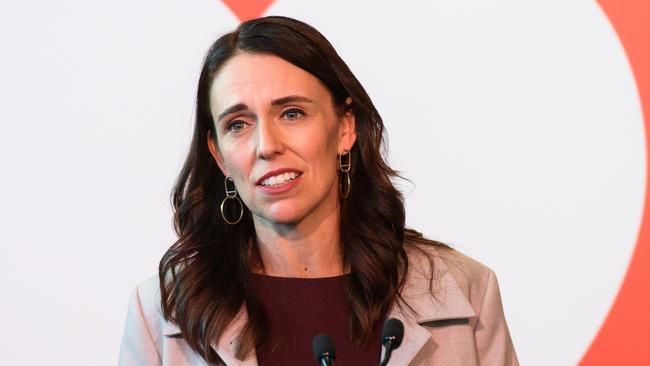
Health Minister Greg Hunt said there has been a six-fold increase in total vaccinations in the past four weeks, with the total number of vaccinations in Australia now standing at 1.653m.
There were 67,034 vaccinations in the past 24 hours and Australia will pass 1.7m vaccinations Tuesday.
Mr Hunt said Australia is confident New Zealand has it under control: “They’re onto this. We have full confidence in New Zealand’s system. We’ve seen them deal with the inevitable outbreaks, and there will be other days when there are cases in Australia. We saw the outbreak recently in Queensland and NSW - two states. And yet, we were able to deal with it.
“So we know how to deal with this. New Zealand knows how to deal with this and the advice I have from the Chief Medical Officer who had been in a meeting with the medical expert panel, or Australian Health Protection Principal Committee today is that they’re watching New Zealand, but they have high confidence that New Zealand has this in train.”
GREECE SUSPENDS J&J JAB
Greece has suspended its planned rollout of Johnson & Johnson’s single-dose vaccine over blood clot fears.
The country was scheduled to start administering the jab from Monday but overturned the decision pending a review by the European Medicines Agency.
The regulator previously said the benefits of the J&J shot outnumber the risks of side effects following reports of rare blood clots.
The head of the national vaccination committee, Maria Theodoridou, said Greece would wait until the European Medicines Agency (EMA) announced its review of the issue on Tuesday local time.
Greece has received 33,600 doses of the J&J vaccines, the secretary-general in charge of vaccinations, Marios Themistocleous, told a regular briefing.
J&J vaccinations were “most likely to start in May,” he said.
US IN ‘PRECARIOUS’ POSITION
The United States remains the hardest-hit nation, with more deaths and known infections than anywhere else, but it passed a major vaccine milestone on Sunday with roughly 130 million Americans — half its adult population — receiving at least one dose.
The country is a world leader in vaccinations, and all its over-18s will be eligible for a shot from Monday.
But its top pandemic adviser Anthony Fauci warned Sunday that the United States remains in a “precarious position”.
“We’re having a seven-day average of over 60,000 new infections per day. That’s a place you don’t want to be,” he said.
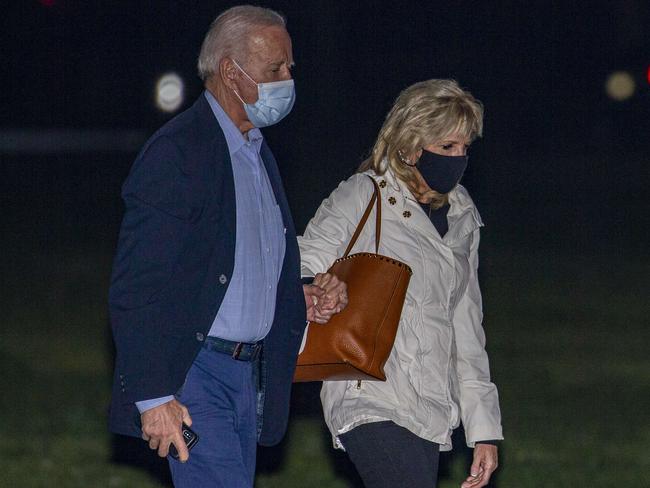
“We also have to make sure that people don’t throw caution to the wind and declare victory prematurely. That’s not the time to do that.”
Neighbouring Canada illustrated the threat of a fresh coronavirus wave, as authorities scrambled to funnel additional health staff and equipment into virus-hit Ontario to battle a surge in infections.
Ontario is Canada’s most populous province, and record cases are threatening to overwhelm its healthcare system.
INDIA IN LOCKDOWN AS VIRUS RAGES
India will lock down its capital New Delhi for a week from Monday night to try and control a raging coronavirus outbreak, as the hard-hit United States passed a hopeful milestone of giving at least one COVID-19 vaccine dose to half its adults.
India is still facing skyrocketing infections, with hospitals running out of beds and the government forced to reimpose economically painful restrictions again.
The capital New Delhi braced for a fresh lockdown as officials scrambled to get surging cases under control.
“Delhi’s health system is at a tipping point. The COVID-19 situation is pretty critical,” Delhi Chief Minister Arvind Kejriwal said.
“If we don’t impose a lockdown now, we will be looking at a bigger disaster.”
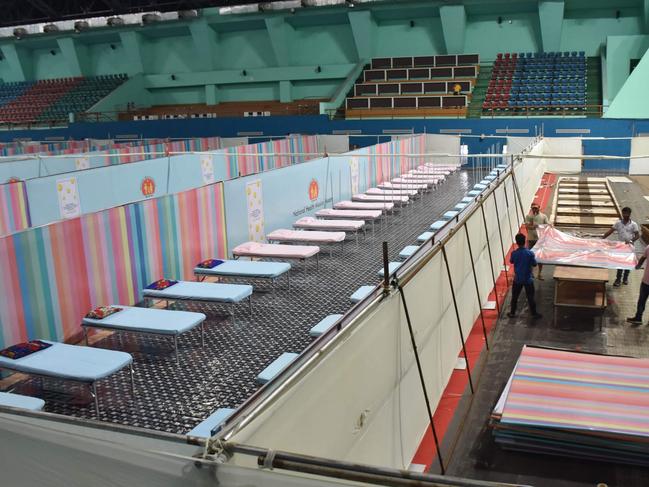
The Delhi lockdown came after the vast nation of 1.3 billion people reported a record high of 273,810 infections on Monday — the fifth consecutive day of more than 200,000 cases.
India has the world’s second-highest caseload with more than 15 million known infections.
The government said Monday it would make COVID vaccines available to all adults in the country from May 1, in a bid to beat back infections.
The soaring cases forced UK Prime Minister Boris Johnson to cancel a planned visit to the country this month, and Britain said Monday it would add India to its travel “red list”, banning all arrivals from India except for UK or Irish nationals.
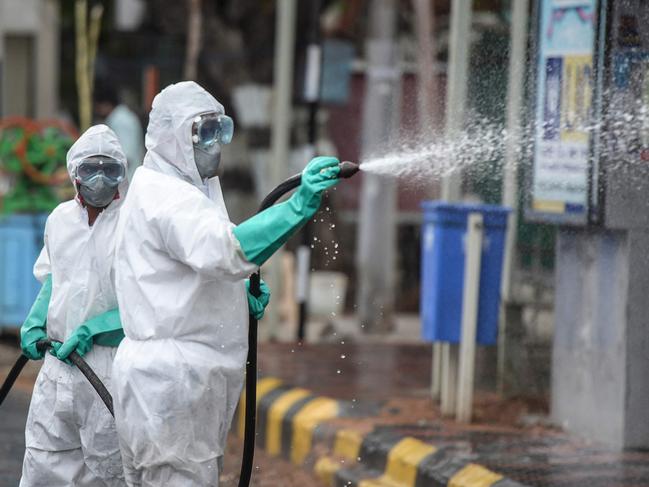
UK Health Secretary Matt Hancock said, “We’ve made the difficult but vital decision to add India to the Red List.”
“In the light of the current coronavirus situation, Prime Minister Boris Johnson will not be able to travel to India next week,” the two governments said in a joint statement.
They said that Johnson and Indian Prime Minister Narendra Modi would instead speak later this month “to agree and launch their ambitious plans for the future partnership between the UK and India”.
“They will remain in regular contact beyond this, and look forward to meeting in person later this year.”
A total of 103 cases of the Indian variant have been identified in Britain, said Hancock.
EUROPE HOPEFUL AS RULES EASE
Across the Atlantic, there were glimmers of hope in Europe, as Portugal said it was reopening shopping malls, high schools and universities and that restaurants and cafes were allowed to offer outdoor dining.
“We are impatient to receive our customers again,” said a happy Constanca Firmino, manager of a cosmetics shop in Lisbon.
Slovenia too eased restrictions after cases dropped, while Greece said some travellers from the EU, Britain, the United States, Israel, Serbia and the United Arab Emirates would not have to quarantine if they were fully vaccinated or had a negative COVID test.
Switzerland was also set to start the week with a step towards normality, with outdoor seating permitted at restaurants and bars and cinemas, sports facilities, and in-person classes at universities reopening.
GRETA CALLS OUT VACCINE INEQUITY
Swedish climate campaigner Greta Thunberg on Monday slammed the “tragedy” of vaccine inequity as she donated 100,000 euros ($155,175) from her foundation to the Covax scheme for global access to COVID-19 jabs.
The donation to the World Health Organisation (WHO) Foundation will support the purchase of vaccines destined for the most vulnerable populations and health workers in some of the world’s poorest countries.
“The international community must do more to address the tragedy that is vaccine inequity,” 18-year-old Thunberg said.
“We have the means at our disposal to correct the great imbalance that exists around the world today in the fight against COVID-19. Just as with the climate crisis, we must help those who are the most vulnerable first.”
She said Covax “offers the best path forward to ensure true vaccine equity and a way out of the pandemic”.
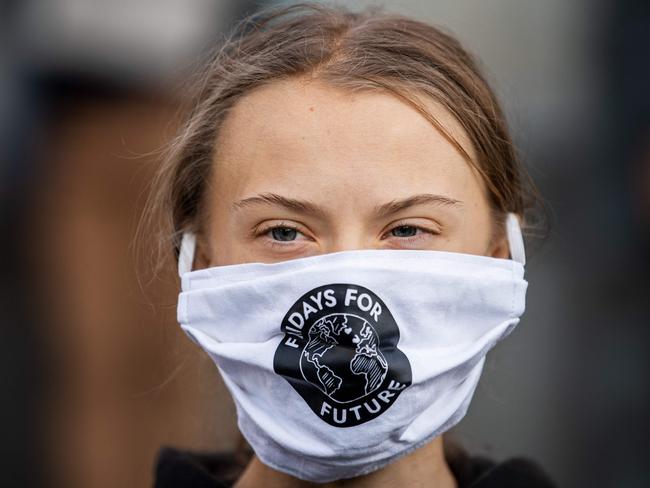
Nearly 900 million doses of COVID-19 vaccines have been injected in at least 206 territories around the world, according to an AFP count.
Some 48 per cent of the doses have been administered in high-income countries accounting for 16 per cent of the global population.
Just 0.1 per cent have been administered in the 29 lowest-income countries, home to nine per cent of the world’s population.
WHO chief Tedros Adhanom Ghebreyesus said, “I urge the global community to follow Greta’s example and do what they can, in support of Covax, to protect the world’s most vulnerable people from this pandemic.”
The WHO has consistently made the link between human health, animal health and the health of the planet during the COVID-19 pandemic, with coronavirus thought to have made the species jump from the animal world, either through humans encroaching on natural habitat, or through animal consumption.
Thunberg said she plans to skip the COP26 climate summit in Glasgow this November, saying the uneven rollout of COVID vaccine campaigns would mean countries could not participate on even terms.
EU MAY ABANDON ASTRA JAB
The EU’s internal markets commissioner Thierry Breton hinted on Sunday, local time, that the bloc might decide not to order AstraZeneca’s coronavirus jab again following delays in delivering the first batches of the vaccine.
“We’re pragmatic. My priority, as far as the vaccines are concerned, is to ensure that the firms we have contracts with deliver them punctually,” Mr Breton told BFMTV television.
Brussels had originally ordered 120 million doses of the Anglo-Swedish group’s jab for the 27 member states in the first quarter and 180 million in the second quarter.
But the drug maker “only delivered 30 million, thus creating the problems that everyone has seen,” Mr Breton said.
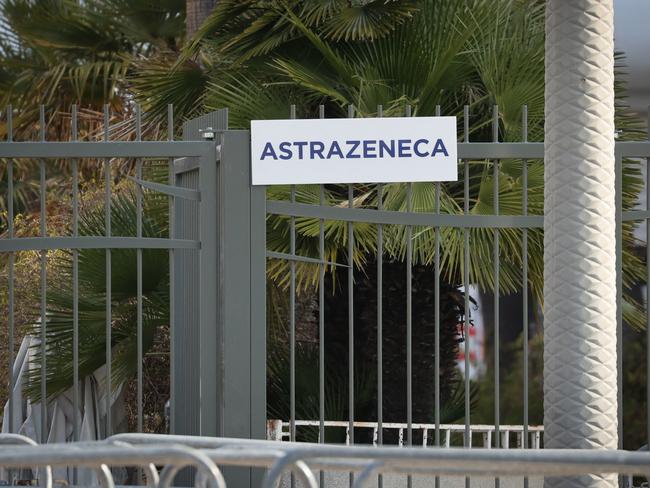
And only another 70 million will be delivered in the second quarter, he continued, but added: “Nothing is decided. Talks are still ongoing”.
The EU commissioner insisted that any such decision would “not be for epidemiological or medical reasons”.
“When looking at the data, the benefits of the AstraZeneca vaccine outweigh the disease,” he said.
French industry minister Agnes Pannier-Runacher had suggested on Friday that the EU might not renew its contract with AstraZeneca in 2022 after Denmark became the first European country to stop using the jab altogether over suspected rare but serious side effects.
While other countries also suspended its use, at least temporarily, most have subsequently resumed after the European Medicines Agency (EMA), emphasised the benefits of the vaccine, judging it “safe and effective”.
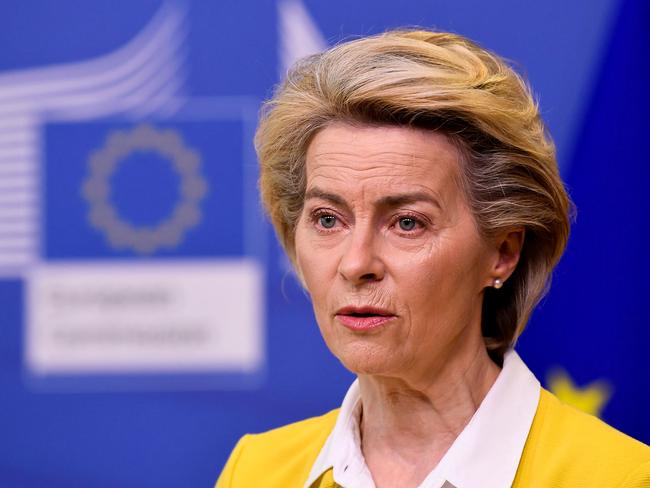
Pannier-Runacher said that the EU had “not started discussions with Johnson & Johnson and with AstraZeneca for a new contract, whereas we have already started discussions with Pfizer-BioNTech and Moderna”, the makers of two other vaccines on the market in Europe.
EU Commission chief Ursula von der Leyen also said this week that German biotech firm BioNTech and US pharma giant Pfizer had shown themselves to be “reliable partners, who have honoured their commitments and have reacted quickly with regard to our needs”.
In France, 23 cases and eight deaths have been reported of rare blood clots after taking the AstraZeneca jab, out of more than 2.7 million doses administered so far.
Nevertheless, Alain Fischer, an immunologist who heads the government’s vaccination advisory board, told French radio on Sunday the benefits of the jab for people aged 55 and over “very much outweighed the risks” of possible complications.
ISRAELIS GO MASKLESS IN VIRUS VICTORY
Israelis stepped into the streets without masks on Sunday for the first time in a year, a key milestone as the country vaccinates its way out of a coronavirus nightmare.
“It’s very strange but it’s very nice,” said Eliana Gamulka, 26, after getting off a bus near the busy Jerusalem shopping boulevard of Jaffa Street and removing her face covering.
“You can’t pretend that you don’t know anyone any more,” she smiled. With over half the population fully vaccinated in one of the world’s fastest anti-COVID-19 inoculation campaigns, the health ministry announced on Thursday that masks would no longer be required in public outdoor spaces.
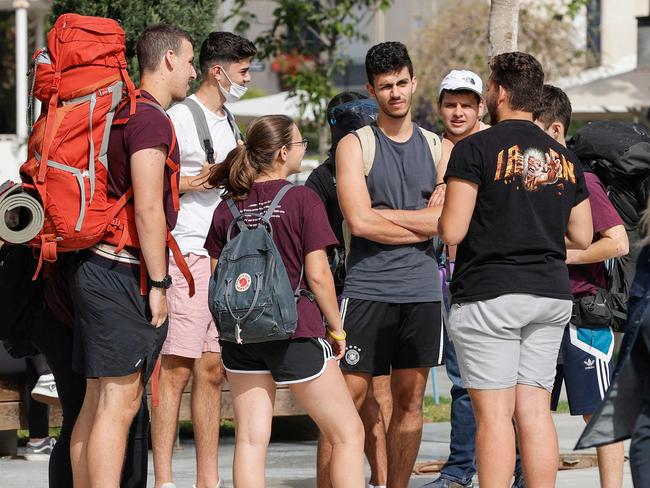
For Gamulka, a project manager, the good news came at the perfect time: just two weeks before her wedding.
It will be “very nice to celebrate with everyone, now without masks,” she said. “The pictures will be great! I’m very relieved. We can start living again.”
The vaccination of close to five million people has sent Israel’s coronavirus caseload tumbling from some 10,000 new infections per day as recently as mid-January, to around 200 cases a day.
That has allowed the reopening of schools, bars, restaurants and other indoor gatherings — although masks are still required in indoor public spaces.
And even before Health Minister Yuli Edelstein’s announcement came into effect, punters in the popular bars of Jerusalem’s Mahane Yehuda market were mask-free and smiling on Thursday evening.
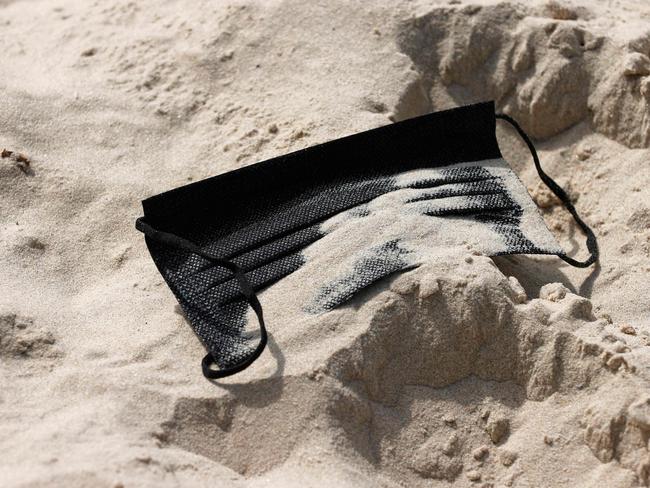
GLOBAL DEATH TOLL PASSES THREE MILLION
The global COVID-19 death toll passed three million on Saturday as the pandemic continues to speed up despite vaccination campaigns, leading countries like India to impose new lockdowns to fight spiralling infection numbers.
It is the latest grim milestone after coronavirus surfaced in central China in December 2019 and has infected more than 139 million people, leaving billions more under crippling lockdowns and ravaging the global economy.
An average of more than 12,000 deaths were recorded globally every day in the past week, shooting the overall toll past three million on Saturday, according to an AFP tally.
And the pandemic is showing no sign of slowing down: the 829,596 new infections reported worldwide on Friday is the highest number yet, according to AFP’s tally.
The daily average of 731,000 cases registered over the last week is also close to being a record.
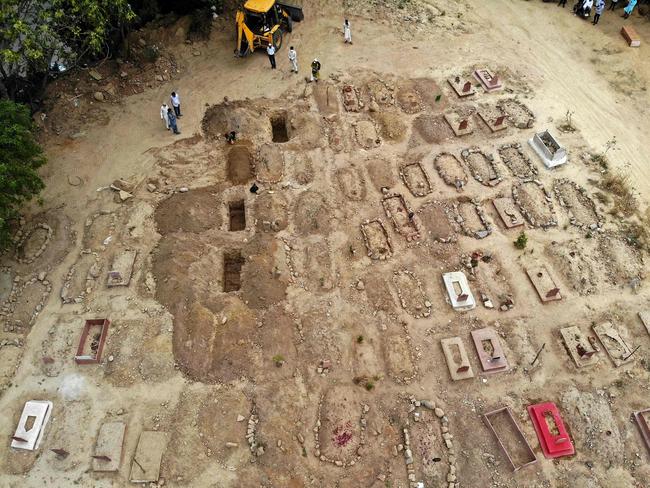
India’s capital New Delhi went into a weekend lockdown Saturday as the world’s second-most populous nation recorded 234,000 new cases and 1,341 deaths.
India now has three times the daily cases of the United States, the world’s worst-hit nation, and families are clamouring for drugs and hospital beds.
Hopes that South Asian countries might have seen the worst of the pandemic have been dashed, with India recording over two million new cases this month alone and Bangladesh and Pakistan imposing new shutdowns.
Udaya Regmi of the international Red Cross said the “truly frightening” South Asian surge was a “wake-up call to the world”.
“Vaccines must be available to everyone, everywhere, rich and poor to overcome this terrible pandemic,” Regmi added.
Richer countries that have waged mass inoculation efforts have seen their virus numbers plummet. Britain, which has given 60 per cent of the population at least one vaccination dose, now records around 30 deaths a day — down from 1,200 in late January.
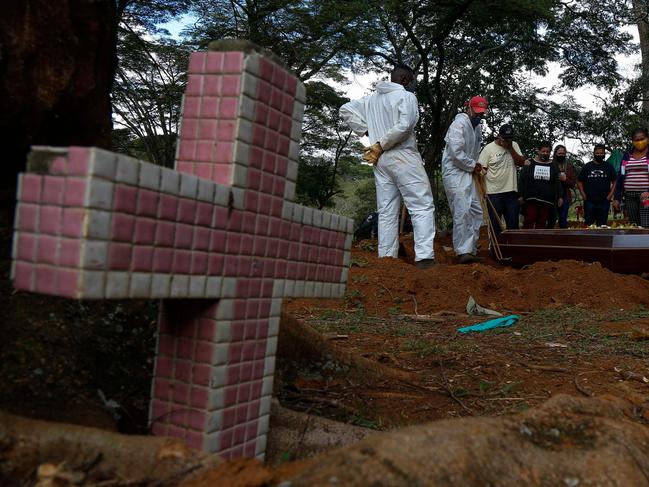
In Brazil, the country with the third-highest death toll in the world where more than 365,000 people have died from COVID-19, night shifts have been added to several cemeteries as Diggers work around the clock to bury the dead.
“We try not to get upset in our work, but it is sad, it is a lot of people,” one of the gravediggers there said after a long shift.
Despite the high infection rate, the government of Brazil’s most populous state Sao Paulo announced it will allow businesses and places of worship to reopen from Sunday.
The "Brazil variant," a more-contagious mutation of the coronavirus that emerged in the Amazon late last year, is fuelling fears the pandemic could flare anew, leading several countries to suspend flights from Brazil.
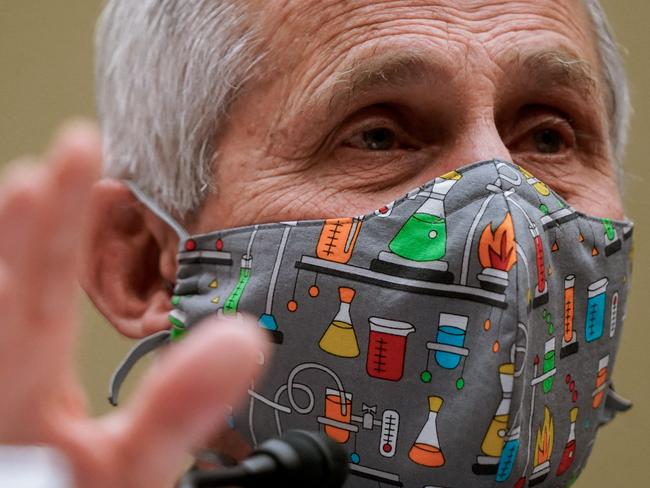
REGULATORS TO RULE ON J & J JAB
A decision on whether to end a US pause in vaccinations with the Johnson & Johnson COVID-19 shot is likely by Friday, top US pandemic Adviser Anthony Fauci said on Sunday.
A government-convened expert panel has been assessing the vaccine’s possible links to a clotting disorder seen in a half-dozen relatively young women, none with previously known clotting disorders.
Meantime, the European Medicines Agency said it expected to rule on the safety of the Johnson & Johnson’s shot on Tuesday after evaluating data on blood clotting.
Dr Fauci said that by Friday “we should have an answer as to where we’re going with it. I would think that we’re not going to go beyond Friday in the extension of this pause.”
Dr Fauci noted that the clotting disorder was “an extraordinarily rare event.”
“I believe we’ll get back with it,” he said, though possibly with some restrictions or warnings on its use.
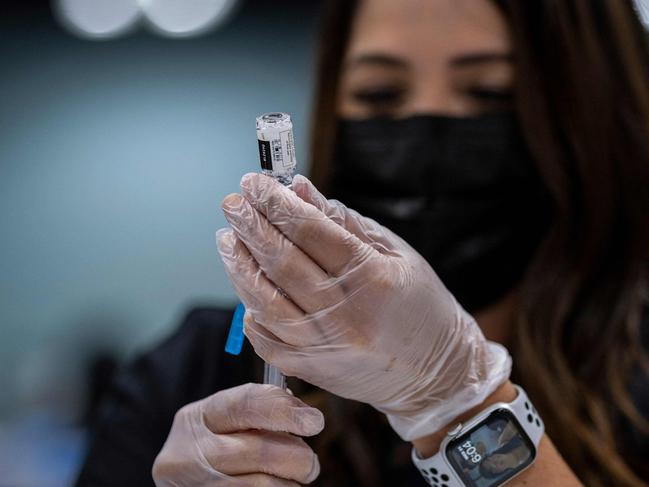
US health authorities have reported six cases of women developing brain clots along with low blood platelet counts, including one death, within two weeks of getting the one-dose vaccine. All the women were between 18 and 49.
CDC director Rochelle Walensky has said that the symptoms in the women suffering clotting disorders were consistent with rare side effects from the AstraZeneca vaccine seen in Europe.
The clotting problem has not been linked to the Pfizer or Moderna vaccines.
It comes as a 21-yera-old university student died a day after receiving the Johnson & Johnson vaccine. John Foley, 21, died unexpectedly last Sunday — a day after he was administered the one-dose jab, Hamilton County Coroner Lakshmi Kode Sammarco told Fox 19.
The cause of Foley’s death is under investigation by the Ohio Department of Health and the coroner’s office.


